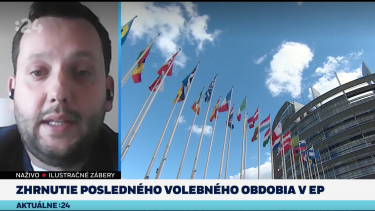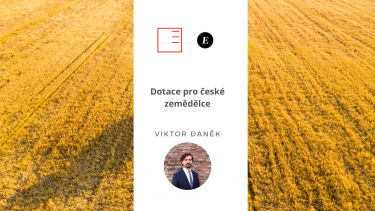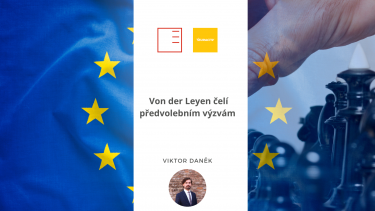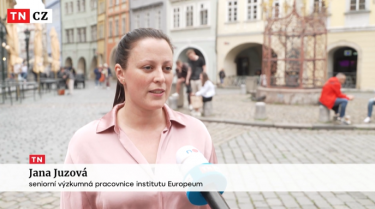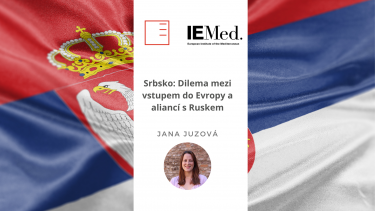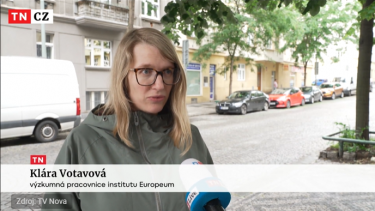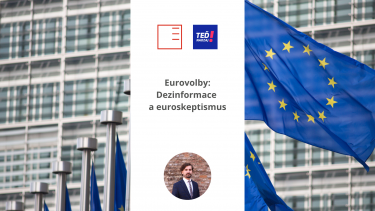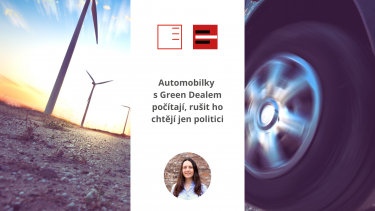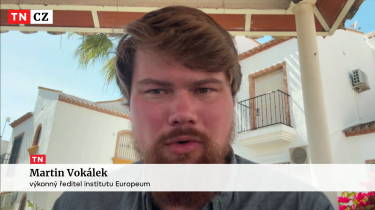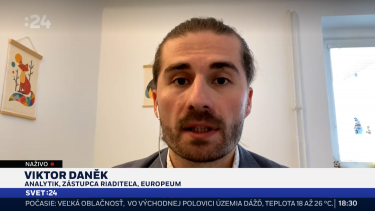RTVS | The Last Parliamentary Term in the European Parliament
What was the last parliamentary term like in the European Parliament? How did it manage two crises – the war in Ukraine and COVID-19? And how can the aid to Ukraine be assessed? Žiga Faktor, Deputy Director and Head of the Brussels Office of EUROPEUM Institute, answers these and other questions in an interview for Slovak television RTVS.
Show more
Ekonomický deník | Subsidies for Czech farmers
Farmers in the Czech Republic receive the fifth largest package of national subsidies in the European Union, behind Poland, Germany and Austria. Moreover, the whole system is set up in such a way that small farmers often do not receive subsidies at all. According to Viktor Daňek, deputy director of EUROPEUM Institute, the system cannot function fairly without a cap or a significant degression in payments.
Show moreEuractiv | Ursula von der Leyen faces pre-election challenges
If Ursula von der Leyen wants to sit at the head of the European Commission for a second term, she will likely have to prepare a less green program than five years ago. While no surprises are expected for her nomination, a power shift is anticipated in the European Parliament, which approves the new head of the Commission. Pre-election models predict a strengthening of parliamentary factions critical of the Union. Viktor Daněk, Deputy Director of EUROPEUM Institute, commented for Euractiv.
Show moreTV Nova | Brussels will deal with the enlargement of the Union. Among the candidates are Turkey or Ukraine
The elections to the European Parliament are less than a week away, and one of the main topics that Brussels will have to deal with in the coming years is the enlargement of the European Union. A total of nine countries are waiting to join the EU, but according to experts, rapid expansion is unlikely. The President of the European Council, Charles Michel, talks about the possibility of enlargement until 2030, which requires reforms from both the candidate countries and the Union itself. Jana Juzová, researcher at EUROPEUM Institute, commented on the situation for TV Nova.
Show moreIEMED | Serbia: The Dilemma between European Accession and Alliance with Russia
With Ukraine’s defence against Russia heading toward a stalemate in the second half of the year and increased pressure inside the EU to deliver on its promises to provide the country with needed financial and military support, Serbia’s ambiguous relationship with Russia and the West has been brought increasingly into the spotlight in 2023. The Serbian Progressive Party (SNS), ruling since 2012, and President Aleksandar Vučić have been responsible for continued democratic backsliding and have failed to align with the Union’s foreign policy during Serbia’s lengthy EU accession process, pushing the situation closer towards a tipping point in Serbia-EU relations. Senior researcher at EUROPEUM Institute, Jana Juzová, describes this in more detail in her article for the European Institute of the Mediterranean.
Show moreTN.cz | Possible changes in European subsidies
The European Parliament elections are less than two weeks away, and one of the main topics will be the subsidy system. A number of experts are calling for it to be changed, and questions arise as to where the European Union will get the money for subsidies. The transformation of the EU towards green technologies could limit financial resources for structural funds, which would have a negative effect mainly on poorer countries, including the Czech Republic. Economists also point to possible financial problems for the EU after the departure of Great Britain, one of the biggest contributors. Klára Votavová, a researcher at the EUROPEUM Institute, commented on the situation for TV Nova.
Show moreTeď naozaj! | EU elections: Disinformation a euroscepticism
What are the trends in the campaigns for the European elections? What disinformation is circulating in the public space about the European Union? What are the reasons for the strong euroscepticism in the Czech Republic? Viktor Daněk, Deputy Director in the Institute EUROPEUM answered these and other questions in the Czech-Slovak podcast "Teď naozaj!".
Show moreiRozhlas.cz | Automobile companies are on board with the Green Deal, it is only politicians who want to scrap it
The Green Deal for Europe is an ambitious strategy to ensure that Europe becomes the first climate-neutral continent by 2050. Most of the parties running for the European Parliament want to change this strategy, despite the fact that the car companies are already anticipating the transition. EUROPEUM Institute researcher Kateřina Davidová commented on the topic in an article for iRozhlas.cz.
Show more
TV Nova | European Union faces drug and doctor shortages
Elections to the European Parliament will take place in less than a month. In addition to security issues, experts warn of the threat of health challenges in the coming years. The European Union will have to deal with a shortage of medicines, an aging population and an increasingly aging medical profession. Martin Vokálek, director of EUROPEUM Institute, commented on these issues for the main evening broadcast on TV Nova.
Show more
RTVS | Does von der Leyen have a clear opponent after the Spitzenkandidaten debate?
Five candidates for the post of European Commission chief clashed in a Europe-wide debate on Thursday. Two factions did not field a candidate. The system of spitzenkandidaten, i.e. the leading candidates of each group for the post of president of the European executive, was created as an effort by MEPs to increase transparency in the filling of the highest posts in the European Union, which clearly includes the president of the Commission. Who will be the one who will form the majority after the elections and does the current head of the Commission, Ursula von der Leyen, have a significant opponent among the other spitzenkandidaten? Viktor Daněk, deputy director of EUROPEUM Institute, analysed the debate for RTVS.
Show moreStaroměstské náměstí 4/1
Prague 1 - Staré Město
110 00
tel.: +420 212 246 552
email: europeum@europeum.org
https://www.europeum.org
